The Web3 and AI Newsletter 15

Hello, everyone, and warm welcome to all newly joined subscribers!
This is the Web3 + AI newsletter, where we explore the intersection of blockchain and artificial intelligence. Happy Women's Day to all women passionate about technology and innovation! I am happy to welcome you all for another portion of exciting Web3 + AI updates, investment and partnership announcements.
Thank you for being here! Let's dive in!
What's New in the Web3 + AI Startup World?
Fetch.ai Launches Fetch Compute, Welcomes peaq Into Fetch.ai Foundation
The Web3 + AI protocol Fetch.ai announced Fetch Compute, a GPU infrastructure combined with extended training capabilities and tools, aimed at accelerating the pace of innovation within the Fetch.ai ecosystem.
Fetch Compute will deploy Nvidia H200, H100 and A100 GPUs to create a platform that developers and users can utilize for computing power, with financing coming from the Fetchi.AI ecosystem fund.
The utilization of Fetch Compute's GPUs will be bound to the staking of the $FET coin, as only stakers could receive Fetch Compute Credits. And since I mentioned $FET, a recent article by the crypto publication CoinDesk raised suspicions about an alleged price manipulation involving the asset.
The Fetch Compute program, initiated on March 7th, suggests that Fetch.ai attempts to become a one-stop shop for AI agents, LLMs, and training. It might also be trying to compete with the growing computation DePIN sector. However, despite being touted as decentralized, Fetch Compute seems to rely on centralized investment and resources, and not crowdsourced GPUs.
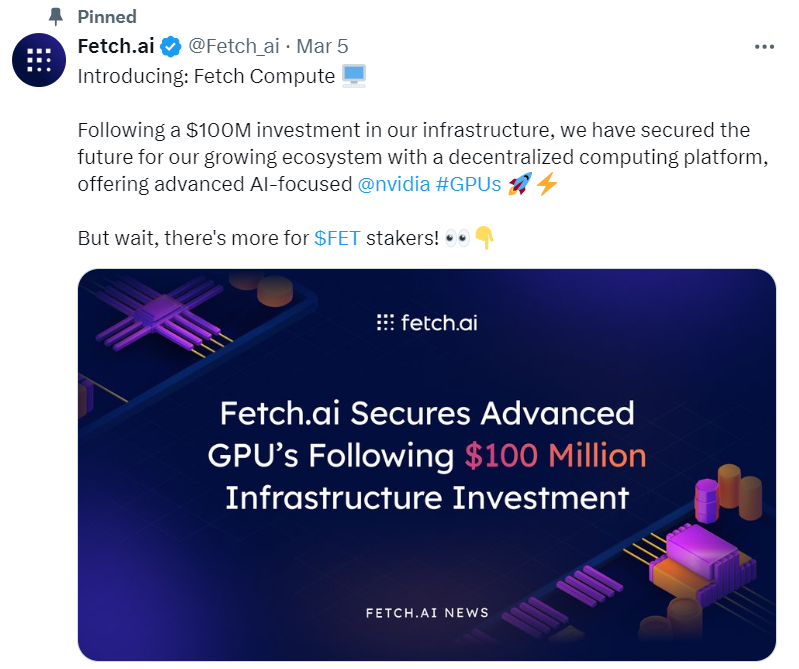
In the meantime, though, the DePIN-focused blockchain peaq joined the Fetch.ai Foundation, intending to help decentralized infrastructure projects leverage AI.
The development sets the foundation for more successful collaborations with Fetch.ai and Bosch in the future, which will create more network activity and value on peaq, and also unlock new opportunities for using AI to optimize DePIN rewards.
A couple of weeks ago, Deutsche Telecom also entered the Foundation as its first corporate partner, alongside founders Fetch.ai and Bosch. The Foundation's main objective is to converge Web3, AI, and the Internet of Things (IoT), and to supercharge a new decentralized paradigm for smart automation.

Zama Attracts $73M to Boost FHE Tech
The Paris-based company Zama received a $73M investment from Multicoin Capital, Protocol Labs, and others, to expand its team and further develop its FHE (fully homomorphic encryption) technology. This is the largest investment round to date globally for an FHE startup, according to TechCrunch. It elevates Zama's market valuation to between $300M and $400M.
Fully homomorphic encryption allows computations to be performed on encrypted data without first having to decrypt it. It is a complex technique to keep data secure as it travels around networks and to third parties. What is more, FHE is an alternative mechanism to guarantee AI's verifiability on-chain besides ZKML, opML, and opp/ai, although FHE is still too slow to be viable.

“FHE is the most important foundational cryptographic primitive for the next decade of computing. Zama’s technology is the key to build multiplayer, privacy-preserving applications,” said Kyle Samani, managing partner of Multicoin Capital, in a statement.
Samani may easily be right if both the considerable worth and importance of data and the abundant data leaks and confidentiality issues are taken into account.
io.net Secures $30M to Build Largest GPU Network
The computation DePIN io.net raised $30M in Series A funding, boosting its market valuation to $1B. The round was led by investors like Hack VC, Solana Labs, OKX, Aptos Labs, Delphi Digital, among others.
Such investments signal that VCs' interest in Web3 + AI startups is growing.
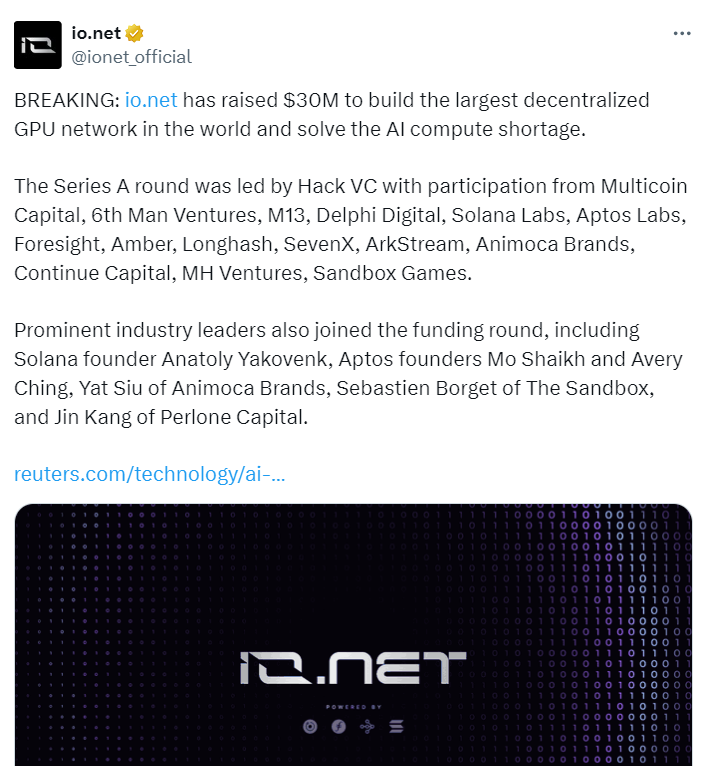
Gnosis Launches AI-Focused Gnosis Lab
In its fourth AI-related monthly call with the community, Gnosis revealed Gnosis Lab, a new internal initiative whose main focus will be AI applications, and introducing AI agents as first-class citizens on Gnosis chain.
Moreover, the new Gnosis Lab team showcased a demo of the prediction market platform, AIOmen, and presented a strategy for launching AI agents on Gnosis. Watch the video below to learn more.
Virtual Protocol and Olas Join Forces to Fuel On-Chain AI Agents
The creator of gaming AIs, Virtual Protocol, announced a partnership with on-chain agents builder Olas / Autonolas to equip AI agents with unparalleled capabilities. In practice, Virtual will use Olas' agent-based architecture to deploy its AI models optimized for agentic behavior in gaming for builders on Coinbase's Base blockchain.
At the heart of the Virtual Protocol lies a conviction that the economic dynamics within gaming worlds will ultimately eclipse those of the physical world. We foresee a new era where AI-powered gaming agents engage in economic transactions autonomously within these virtual landscapes. The deployment of agentic Virtual AI through the OLAS infrastructure represents a step towards the realization of a democratized future state, where the economic and interactive experiences in virtual environments are sovereign and universal.
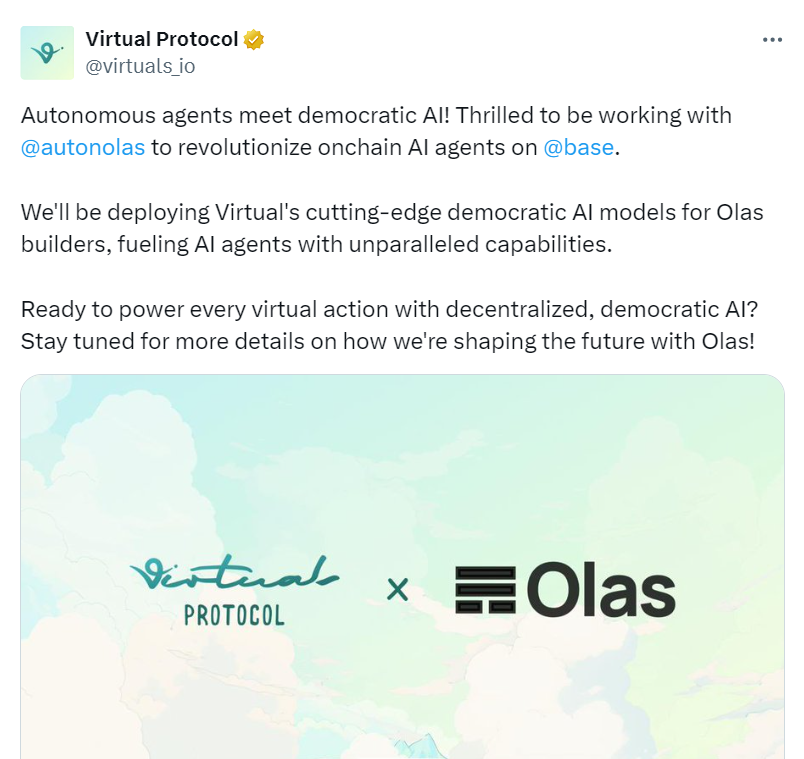
Sahara Raises $6M to Compensate AI Contributors
Los Angeles-based startup Sahara attracted funding of $6M to help users scale and monetize their knowledge in the age of AI. The project integrates blockchain technology to track data in a permissionless and secure way and reward contributors with cryptocurrencies.
One of Sahara’s first products, Sahara Knowledge Agent (KA), will be a customizable AI agent for individuals and businesses. The key difference with Sahara KA relative to other AI agents will be how it’s monetized: The experts and companies that train a Sahara KA can be directly compensated for training the model.
The two founders consider the status quo of big AI labs training their LLMs on troves of data, without rewarding their owners, unfair. Their mission is to help regular users leverage their data to access novel income opportunities.


Noteworthy Podcasts, Articles, Events
Web3 + AI at ETHDenver | Part 1
The 2024 edition of ETHDenver just concluded and, unsurprisingly, the synergy of Web3 and AI became the focal point in it. As expected, the world's largest crypto event hosted the crème de la crème of experts and builders and offered a rich program of talks, panels, and hackathons. Fortunately for all of us who couldn't be there in person, most of those were recorded, and I collected the best for you to watch. Stay tuned for Part 2, where I will share talks exploring DePINs, Infra, and agents.
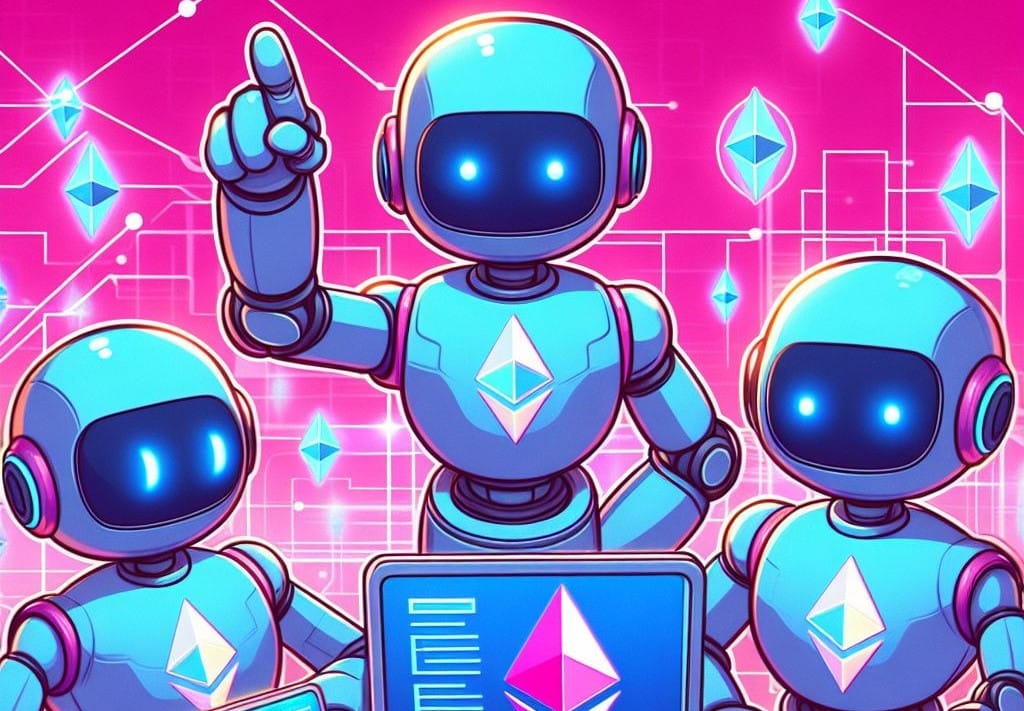
Disclaimer: None of this should or could be considered financial advice. You should not take my words for granted, rather, do your own research (DYOR) and share your thoughts to create a fruitful discussion.




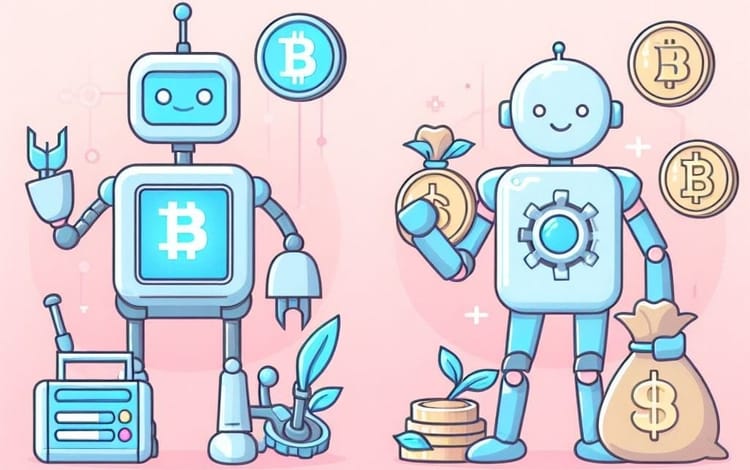



Member discussion